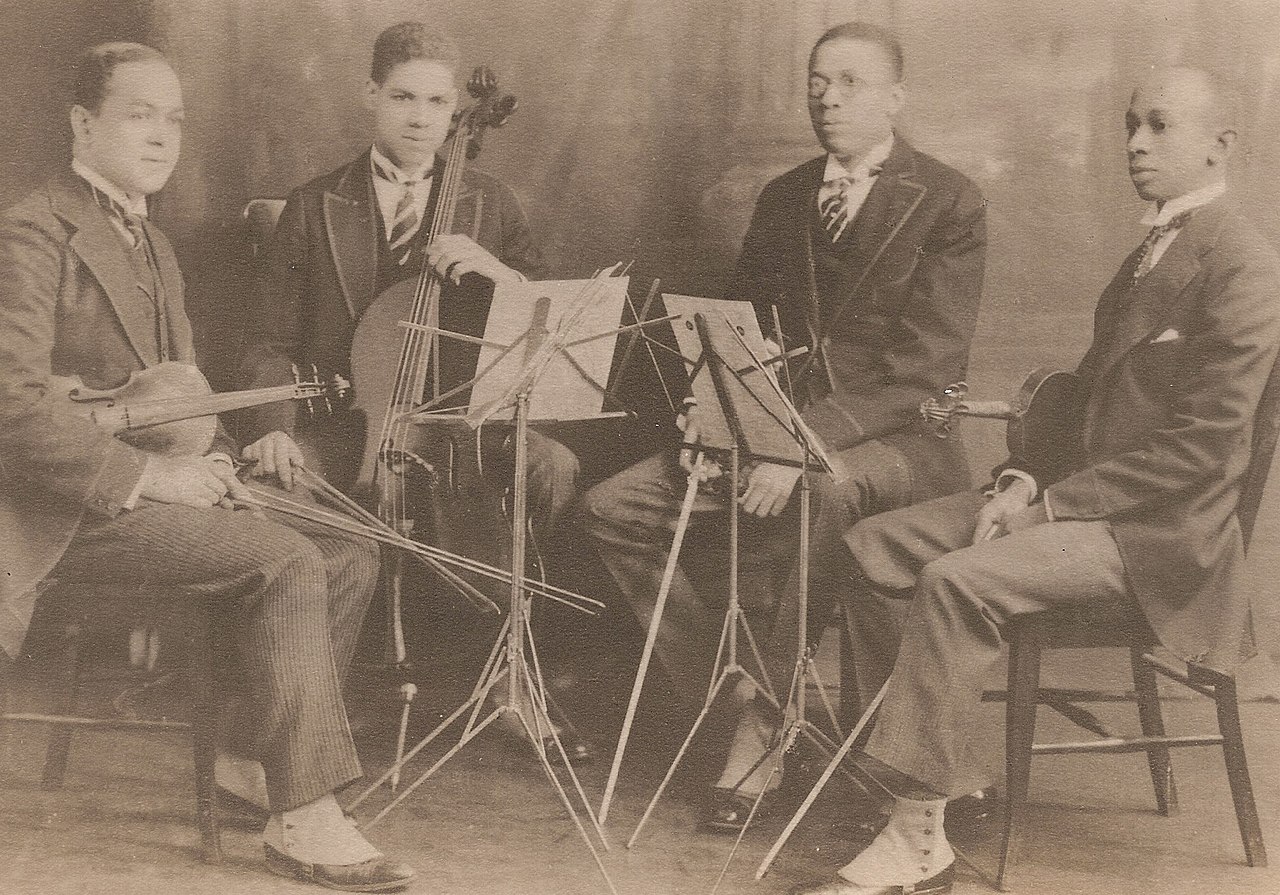The Negro String Quartet was founded by Felix Weir in 1920 and remained active until 1933. The Quartet performed in musical programs at churches and community organizations in Harlem and at Columbia University. The Quartet was composed of Felix Weir and Arthur Boyd, first and second violins respectively. On the viola was Hall Johnson, and Marion Cumbo was on the cello.
The Negro String Quartet was an outgrowth of the American String Quartet, also founded by Felix Weir, who had previously toured as a duet with cellist Leonard Jeter. The pair expanded to include Jeter’s sister, Olyve, who played the piano. In 1914 Weir and Jeter expanded the group once more, dropping pianist Olyve and adding Joseph Lymos and Hall Johnson, constituting the American String Quartet.
The tenure of the American String Quartet ran from 1914-1919. Two of its members (Johnson and Jeter) were members of the pit orchestra of the Broadway musical Shuffle Along. Famed musicians Eubie Blake and William Grant Still were also members of the pit orchestra.
In 1920, under the new quartet, Weir replaced Jeter with cellist Marion Cumbo, his former student. Lymos replaced first violinist Arthur Boyd and Johnson became the quartet’s viola player. The Negro String Quartet performed both European chamber music and the music of African American composers including the music compositions of Samuel Coleridge-Taylor and Clarence Cameron White.
The most significant performance of the Negro String Quartet occurred on November 28, 1925, at Carnegie Hall. The Quartet accompanied the renowned singer Roland Hayes singing spirituals arranged by Quartet member Hall Johnson for tenor, piano, and string quartet. Olin Downes, the music critic of the New York Times, wrote, “The performance had the profound and mystical feeling that the slave songs possess—a spirituality and pathos given them in fact as well as in name…the contribution of musicians and artists together in the presence of a common ideal of beauty.”

